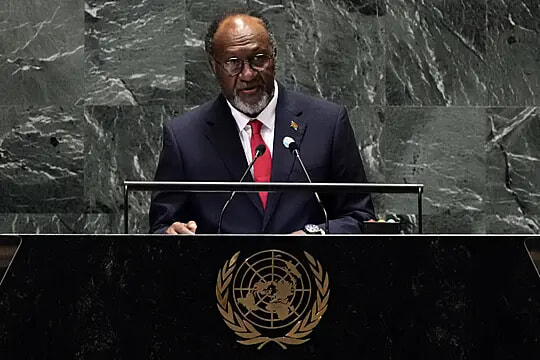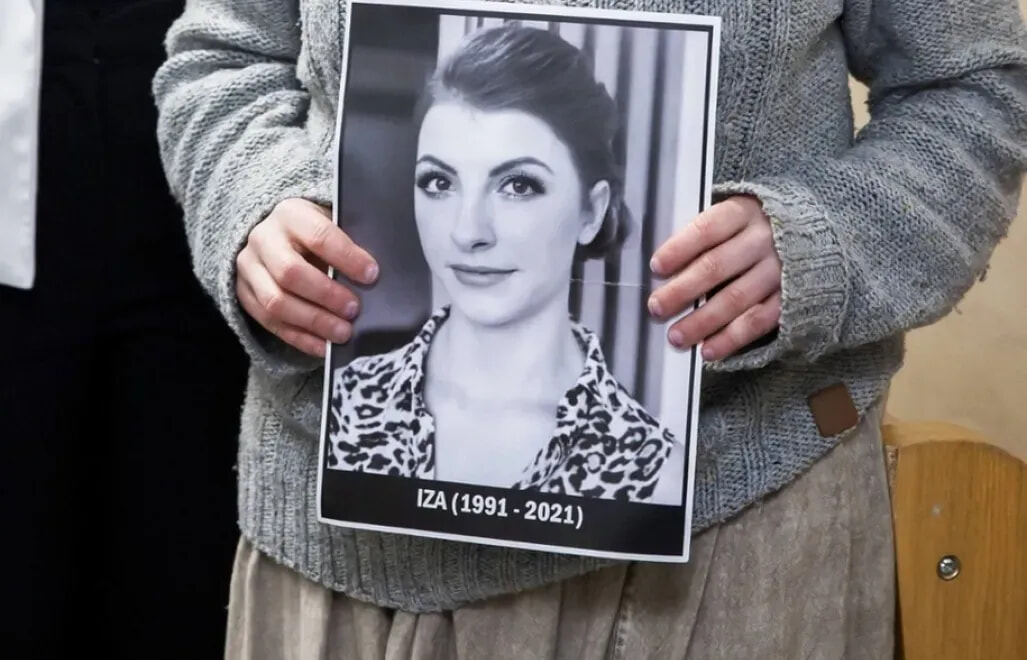
Poland: 3 Doctors Found Guilty Over the Death of a Pregnant Woman
Gruesome.
Published July 25, 2025
Advertisement
Advertisement
1. A Nation Holds Its Breath

In the autumn of 2021, a small hospital in Pszczyna, southern Poland, became the epicenter of a tragedy that would send shockwaves through a deeply divided country.Izabela, a 30-year-old woman and mother, was admitted at 22 weeks pregnant after her amniotic fluid broke—a moment that should have triggered swift and expert medical attention.Doctors confirmed that her fetus suffered from severe developmental defects, yet the care she received was defined by waiting, hesitation, and silence.Text messages from Izabela to her family revealed her growing desperation as the hospital staff made the decision to “wait until [the fetus] dies” rather than intervene.Bound by the shadow of newly tightened abortion laws, the doctors hesitated, even as Izabela’s condition deteriorated rapidly in her hospital bed.As her fever rose and her body began to shake, the fear of legal reprisal loomed larger than the urgent medical crisis unfolding before them.The devastating outcome was inevitable: the fetus died, and within hours, Izabela herself succumbed to septic shock, her pleas for help echoing through the corridors of a system gripped by fear.Her passing left behind a young daughter, a grieving family, and a nation poised on the edge of outrage.Before long, Izabela’s face would become a symbol, carried aloft in candlelit marches and protest banners, demanding not only answers but fundamental change.
Advertisement
2. The Law’s Long Shadow
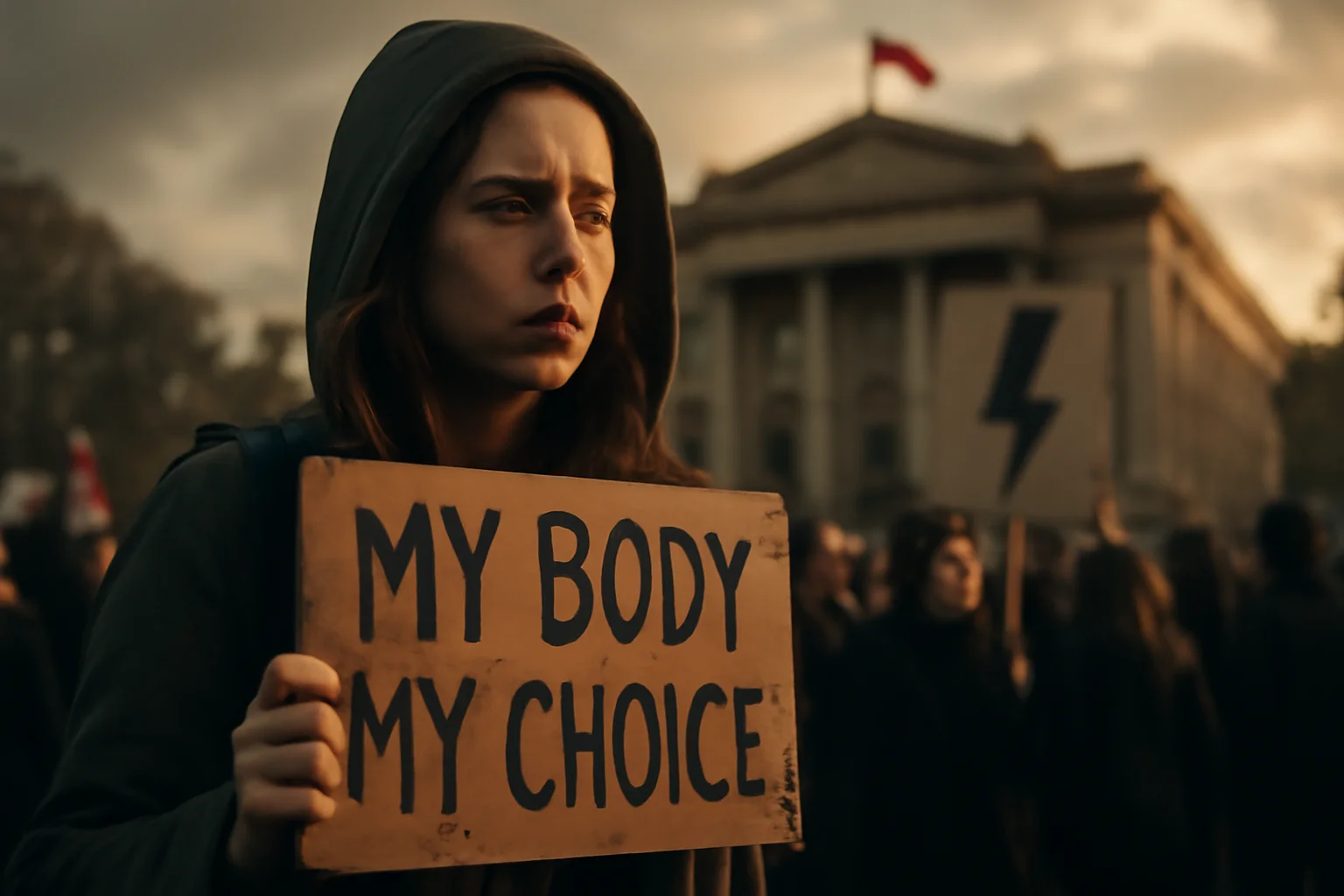
Izabela’s death did not occur in isolation but against the backdrop of a seismic legal shift that redefined reproductive rights in Poland.Months before her tragedy, Poland’s Constitutional Tribunal handed down a ruling that effectively banned abortions in cases of severe fetal malformation, closing a loophole that had accounted for nearly all legal terminations in previous years.Suddenly, the only legal grounds for abortion in the country were cases of rape, incest, or direct threat to the mother’s life, placing doctors and patients in a legal minefield.The law’s chilling effect was immediate and profound: medical professionals faced the paralyzing risk of criminal prosecution for any perceived misstep, and patients found themselves trapped in a system with vanishing options.For Izabela, this meant doctors would not act until the unborn child no longer had a heartbeat, despite her worsening symptoms and increasingly urgent appeals.National outrage erupted as word of her text—"thanks to the abortion law, I have to lie down and there’s nothing they can do"—spread, becoming a rallying cry for a new wave of protest.Defenders of the legislation argued it still permitted abortions when a mother’s life was in jeopardy, but critics pointed to Izabela’s case as proof that fear, confusion, and legal ambiguity were now the law’s most powerful effects.Hospitals, facing their own audits and fines, scrambled to defend their protocols while the nation’s public health officials called for urgent reforms and clearer guidance.Activists accused the government of selling women’s rights to religious ideology, fueling a bitter divide between conservative and liberal factions.For many, Izabela’s story was more than an isolated tragedy—it was the most public casualty of a law that had left the medical community frozen and women across Poland newly vulnerable.
Advertisement
3. A System on Trial

The aftermath of Izabela’s death quickly became a national reckoning, placing not only individual doctors but the entire healthcare system and political establishment on trial.Investigations by prosecutors and public health agencies unearthed a pattern of organizational failures at Pszczyna County Hospital, with inspectors finding "a series of irregularities" and imposing a hefty fine for substandard care.Three doctors—identified as Andrzej P., Michał M., and Krzysztof P.—faced criminal charges, accused of professional negligence and, in one case, involuntary manslaughter.During court proceedings, it emerged that Izabela had suffered from a dangerously high fever for hours before her death, while doctors opted to wait, citing the legal climate rather than medical necessity.Witnesses recounted the agonizing hours as she trembled with fever, aware that her life was slipping away.Despite the high-profile nature of the case, the trial was held behind closed doors, shrouded in confidentiality, while the country’s attention remained fixed on the outcome.In July 2025, nearly four years after Izabela’s death, the verdict was announced: two doctors were sentenced to prison terms of over a year each and banned from practicing medicine for six years; the third received a suspended sentence and a four-year professional ban.Though the sentences can still be appealed, the symbolic weight of the ruling reverberated through Poland’s medical and political communities.Government and opposition figures traded blame, while women’s rights organizations argued that justice remained only partially served.Izabela’s suffering had not only exposed the flaws of a rigid legal regime but cast a harsh light on a healthcare system forced to choose between law and life.
Advertisement
4. The “Not One More” Movement
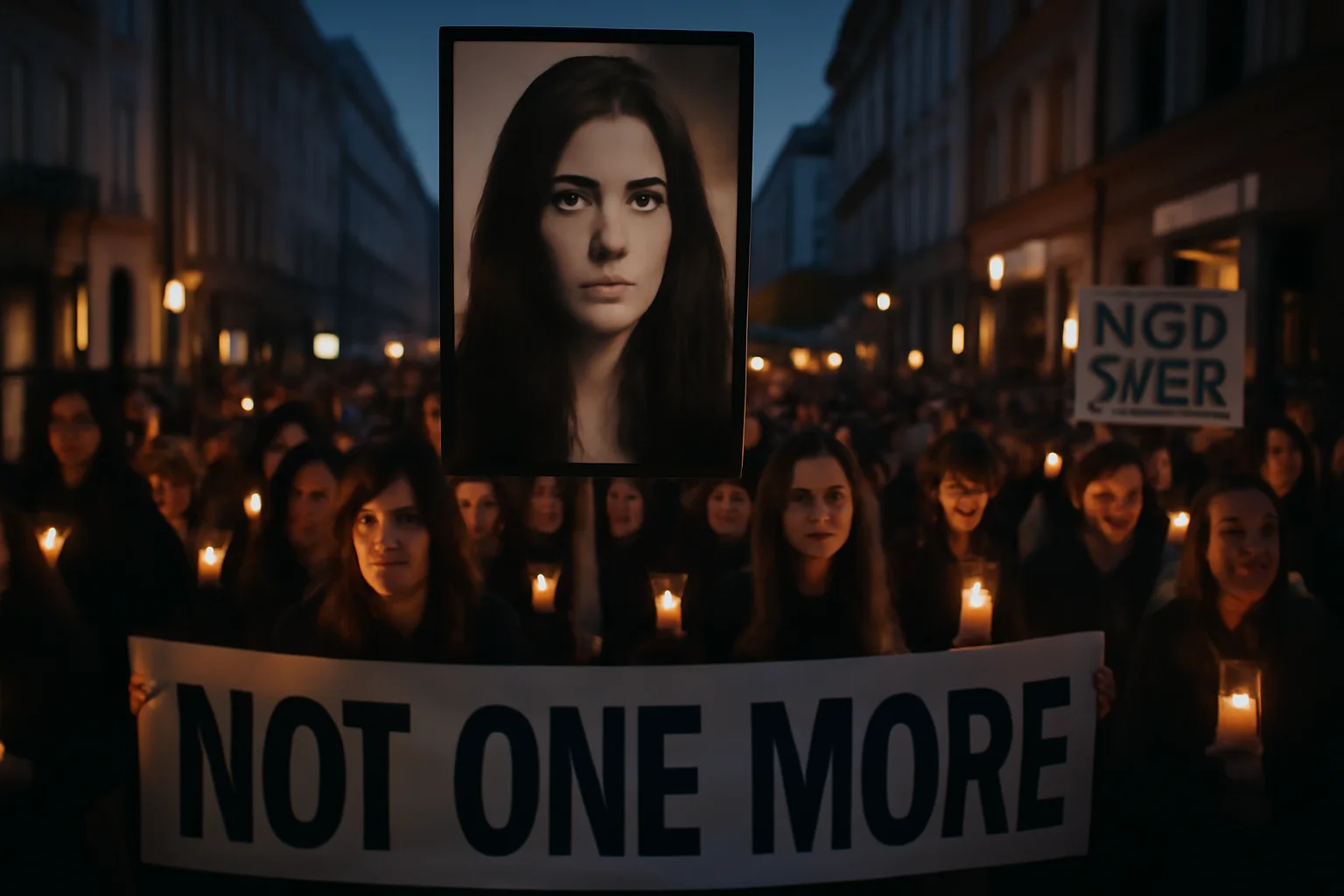
Izabela’s fate galvanized a wave of activism unprecedented in Poland’s recent history, as protests erupted in cities and towns under the banner “Not One More.”Her image became an emblem of resistance, carried through the streets by thousands demanding protection, dignity, and autonomy for women facing medical crises.Marches lit by candles, chants, and banners reverberated with a collective grief that transcended political lines, as people gathered to mourn, remember, and demand change.The movement’s momentum forced the issue of reproductive rights back into the national spotlight, pushing politicians, health authorities, and religious leaders into a renewed and bitter debate.Government officials, including then-opposition leader Donald Tusk, pointed to Izabela’s death as a direct consequence of political extremism and called for urgent liberalization of abortion laws.Within the medical community, the case sparked fear and confusion, with doctors questioning how to provide care under laws that left them vulnerable to prosecution and public censure.Despite pledges by the new ruling coalition to reform the law, progress stalled amid infighting and persistent opposition from conservative forces.Activists argued that each delay came at a terrible human cost, with more women at risk of suffering similar fates.The “Not One More” slogan, once just a hashtag, had evolved into a sustained national movement, promising that Izabela’s story would not be forgotten.Yet for many families, the wounds remained raw, and the question hung over Poland: how many more tragedies before real change would come?
Advertisement
5. Behind the Hospital Walls

Beneath the glare of public outrage and legislative battles, the intimate details of Izabela’s final hours remain a stark indictment of a system paralyzed by fear.Her mother, in interviews, described a young woman who reported high fever and growing pain, only to be told repeatedly that no intervention could be made until the fetus had died.A fellow patient testified to the agony of watching Izabela shiver uncontrollably, her temperature spiking to dangerous levels as doctors waited for a legal green light that never came.The medical notes, examined by inspectors and lawyers, recorded a patient in distress but lacking decisive care, illustrating the way legal constraints could turn guidelines into shackles.Izabela’s own words, preserved in texts to her family, betrayed a sense of abandonment and a chilling awareness that the law, not her doctors, now governed her fate.In the hours before her death, her pleas for help grew more desperate, but intervention came too late to save either her or her unborn child.As the fever advanced to septic shock, Izabela was left suffering both physically and mentally, her awareness of the stakes growing sharper as her body failed.Hospital administrators later defended their actions as being in line with safety protocols, yet audits revealed systemic failures that went far beyond one patient or one decision.For the family left behind, the loss was compounded by the knowledge that the tragedy was preventable—an outcome determined not by medicine, but by a law more powerful than the Hippocratic oath.The broader public, witnessing the details of Izabela’s ordeal, saw in her story a warning for every woman and every family navigating an uncertain system.The hospital was fined, and staff banned, but the greater reckoning—how to protect women’s lives in the shadow of law and fear—remained unresolved.
Advertisement
6. Courtroom Reckoning

The trial of the three doctors became a focal point for the nation, drawing intense scrutiny from the media, the public, and women’s rights organizations.In statements following the verdict, prosecutors called the sentences “satisfactory,” while activists and family members described them as “outrageously mild,” a verdict that did not match the gravity of the loss.The legal process, conducted largely behind closed doors, left many with unanswered questions about accountability, justice, and the future for medical professionals caught between law and ethics.The convicted doctors denied all charges, maintaining that they had acted within the law and according to the standards set by hospital protocols.With appeals expected, the case remained in the spotlight, forcing further reflection on the balance between personal responsibility and systemic constraint.Within the medical community, fear of prosecution for any action or inaction created a climate of hesitation, further complicating decisions in life-or-death situations.The government’s attempts to clarify the law and reassure doctors that saving a woman’s life should never be in doubt fell flat for those who had witnessed Izabela’s fate.Activists argued that the verdict, while a step toward accountability, was a far cry from true justice, and warned that similar tragedies could happen again.For Izabela’s family, the ruling offered little comfort; as her sister-in-law said, “She died consciously, suffering physically and mentally... she begged for help, knowing she might die.”The memory of her suffering remained a potent reminder of what was at stake in the battle over women’s rights and medical freedom.As appeals moved forward, the case continued to haunt Poland, a nation still searching for answers amid grief, anger, and persistent division.
Advertisement
7. Game: Parties, Power, and Promises

In the wake of Izabela’s death, Poland’s political establishment erupted in finger-pointing and blame, with leaders on all sides using the tragedy as ammunition in ongoing battles over the country’s direction.Donald Tusk, leader of the opposition at the time and later prime minister, accused the ruling Law and Justice (PiS) party of “selling itself to a religious sect,” holding them responsible for Izabela’s fate.The PiS party, for its part, denied any link between the abortion law and her death, citing the prosecutor’s finding that the legislation had no direct bearing on the doctors’ actions.Government officials struggled to strike a balance between defending the law and addressing the growing outrage from both the public and the medical community.Audits of hospital practices and calls for new guidance on abortion care proliferated, yet few tangible changes followed.Within the new coalition government, pledges to liberalize abortion laws faced resistance from conservative factions, stalling reform efforts and deepening public frustration.Every statement from officials seemed to stoke the debate rather than resolve it, with activists pointing to each new tragedy as proof of systemic failure.Media coverage kept the spotlight on Izabela’s story, ensuring that the issue remained at the center of national discourse.Political leaders promised to “avoid mistakes” and “protect women’s lives,” but for many, these words rang hollow in the absence of real legislative change.The political blame game exposed deep divisions—not only between parties, but within families, communities, and even among doctors themselves.As Poland’s government struggled to move forward, the question lingered: could any law or leader truly guarantee that “not one more” woman would suffer as Izabela had?
Advertisement
8. New Tragedies, Old Patterns
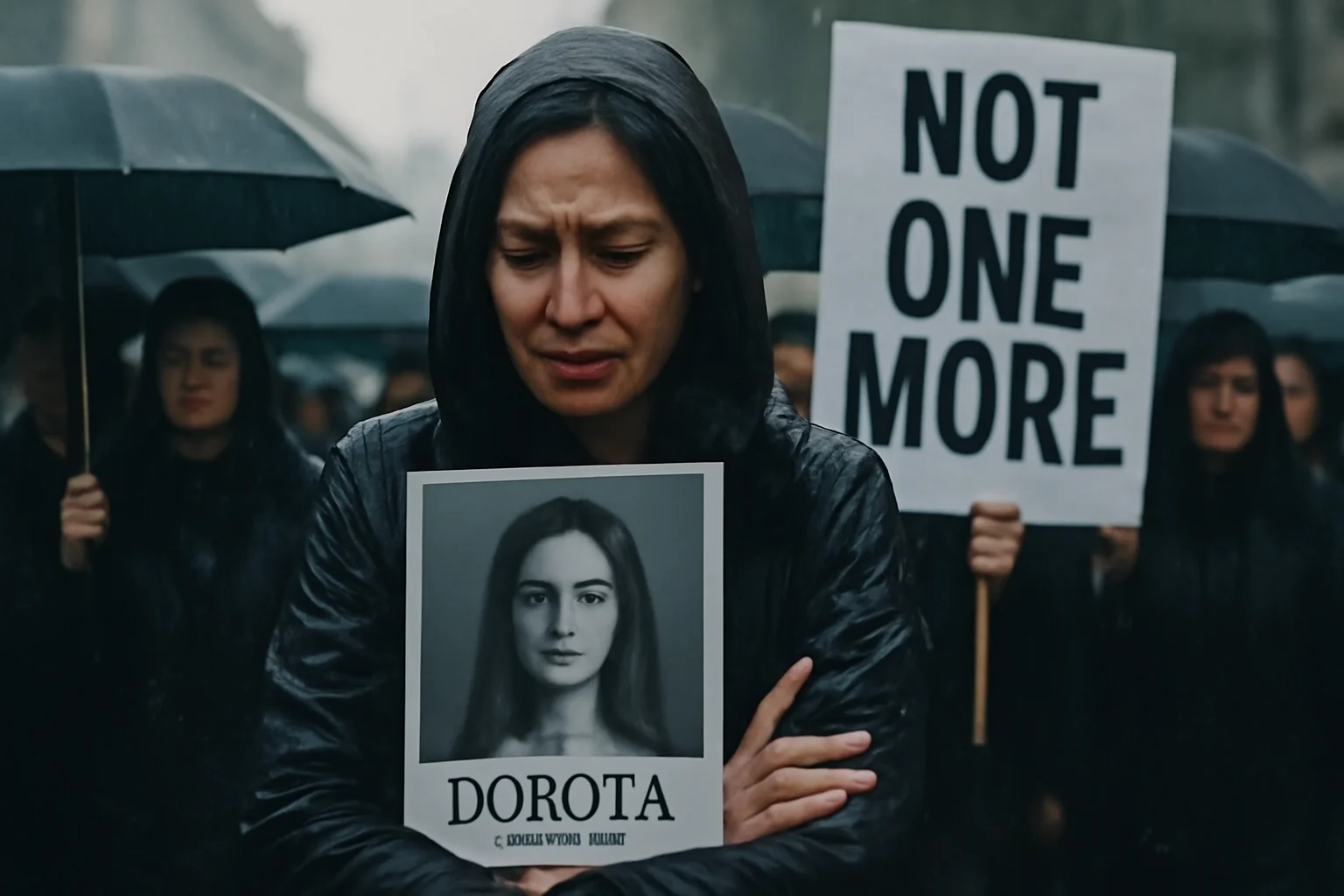
The aftermath of Izabela’s case revealed that hers was not an isolated incident but part of a troubling pattern that continued to haunt Poland’s healthcare system.In the months following her death, new cases emerged—most notably that of Dorota, another pregnant woman who died in 2023 after doctors delayed intervention, sparking further protests and outrage.Each tragedy reignited debates about the consequences of restrictive abortion laws, with activists arguing that fear of legal repercussions left women at grave risk.Hospitals faced increasing scrutiny from auditors and patient advocates, yet systemic issues remained deeply entrenched, with many facilities struggling to balance safety, legality, and compassion.The government established new task forces and promised reforms, but critics contended that these efforts did little to address the root causes of the crisis.Doctors, wary of prosecution, continued to navigate a landscape where every decision could become a legal and ethical minefield.Families affected by similar losses spoke out, adding their voices to a growing chorus demanding change and accountability.The “Not One More” movement expanded its reach, linking individual stories to a national narrative of suffering, courage, and resistance.Despite growing international attention, Poland’s internal debates remained mired in political gridlock and cultural conflict.For every step forward, setbacks reminded the nation that progress would be hard-won and that Izabela’s story was, tragically, far from unique.
Advertisement
9. The Human Toll

Beneath the legal arguments and political maneuvering, the personal stories of loss and resilience continued to define the struggle for women’s rights in Poland.Izabela’s family, especially her young daughter and grieving relatives, became the living witnesses to a preventable tragedy that forever altered their lives.Her sister-in-law, in public interviews, described the agony of watching Izabela suffer, fully aware of her own peril and powerless to change her fate.Women across Poland, inspired by her story, came forward with their own experiences of fear, denial of care, and brushes with danger under the new laws.Counselors, activists, and healthcare workers offered support, but the scars of trauma and loss proved deep and enduring.The struggle extended beyond borders, with international organizations and foreign governments expressing concern and solidarity with Poland’s women.Even as appeals and protests wore on, Izabela’s memory remained a rallying point for those committed to change.The emotional weight of her death fueled new initiatives for education, advocacy, and legal reform, despite continued resistance from conservative voices.For every law debated and every court case argued, there were mothers, daughters, and sisters living with the consequences—each one a silent testimony to the urgent need for compassion in medicine.As the world watched, Poland’s fight for women’s autonomy and safety stood at a crossroads, with Izabela’s legacy casting a long and indelible shadow.
Advertisement
10. Beyond the Verdict
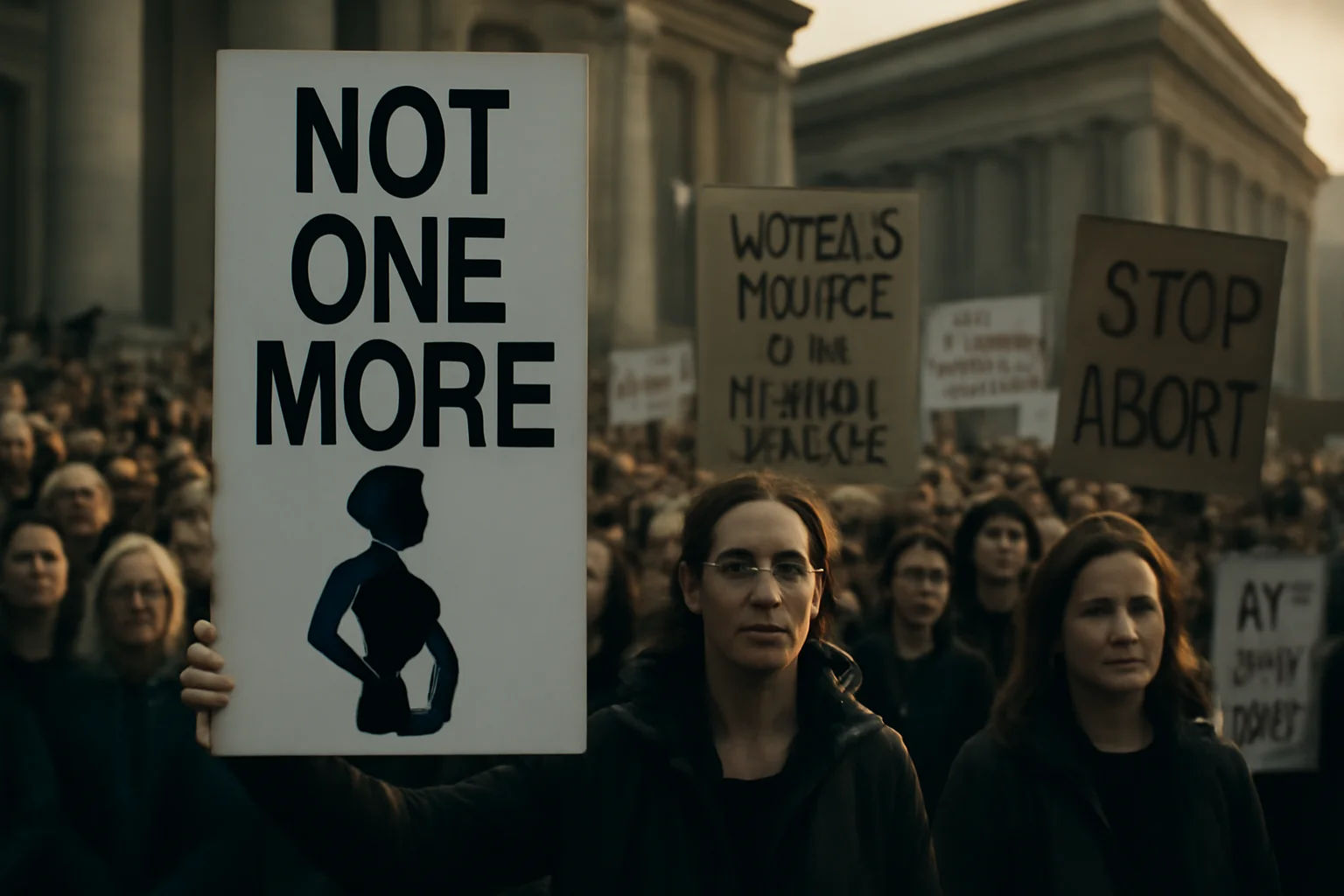
As Poland grapples with the aftermath of Izabela’s death and the legal, political, and ethical battles it ignited, the country stands at a moment of profound reckoning.The verdict against the three doctors marked a turning point, yet for many, it fell short of the justice and systemic change demanded by the tragedy.Debate continues to rage between those who see restrictive abortion laws as necessary for protecting life and those who argue that such laws endanger women and erode human rights.Hospitals and healthcare workers remain caught in a web of fear and uncertainty, with every emergency a potential test of the nation’s conscience and compassion.Activists and families press on, convinced that only sustained pressure and public awareness will bring about the changes needed to safeguard future generations.Within the corridors of power, efforts to reform the law face persistent resistance, yet the momentum for change shows no signs of abating.Izabela’s story, once just a personal tragedy, now stands as both a warning and a call to action—a testament to the dangers of inaction and the cost of silence.As the movement she inspired grows, the promise of “not one more” becomes both a challenge and a hope, echoing in protests, courtrooms, and hospital wards across the nation.For Poland, the path forward remains uncertain, shaped by memories of loss, the struggle for justice, and the unyielding demand for dignity and care.Izabela’s legacy endures, urging a fractured nation to choose courage over fear, and to honor her memory with real and lasting change.
Advertisement
Advertisement
You May Also Like


